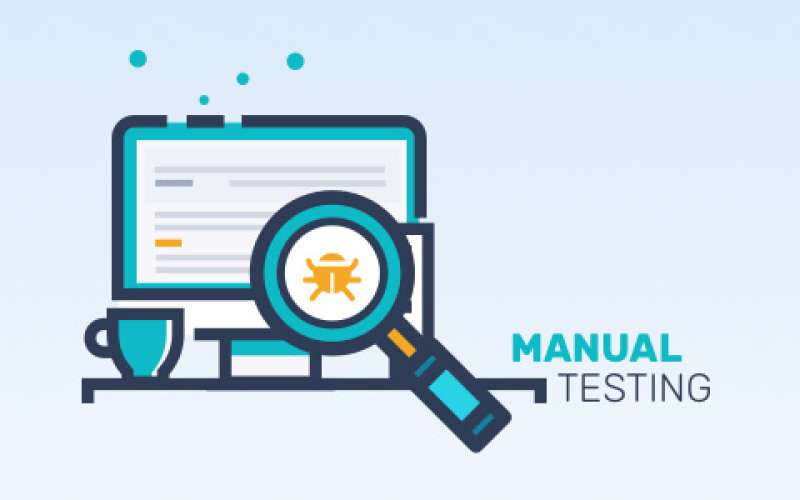Understanding the Role of a Manual Testing Specialist

Explore the role, career path, responsibilities, and salary of a Manual Testing Specialist in India and the US. Learn how to succeed.
What is a Manual Testing Specialist?
A Manual Testing Specialist is a professional who focuses on the manual execution of test cases to ensure software applications meet quality standards. Unlike automated testing, which uses scripts and tools to perform tests, manual testing involves human testers who interact with the software to identify defects, usability issues, and inconsistencies. Manual Testing Specialists play a crucial role in the software development lifecycle by verifying that applications function as intended and providing feedback for improvement.
How to Become a Manual Testing Specialist?
Becoming a Manual Testing Specialist involves acquiring the right educational background, skills, and experience. Here’s a roadmap to achieve this role:
Educational Background:
- Obtain a Bachelor's degree in Computer Science, Information Technology, Software Engineering, or a related field.
- A Master’s degree in Software Engineering or Quality Assurance can enhance your qualifications and career prospects.
Acquire Relevant Skills:
- Develop a strong understanding of software development methodologies, such as Agile, Scrum, and Waterfall.
- Learn about different types of testing, including functional, regression, integration, and user acceptance testing (UAT).
- Familiarize yourself with test case design, bug tracking, and defect management.
- Gain proficiency in tools used for bug tracking and test management, such as JIRA, Bugzilla, or TestRail.
Certifications:
- Obtain certifications like ISTQB (International Software Testing Qualifications Board) Foundation Level to validate your expertise in manual testing.
Gain Experience:
- Start with entry-level positions such as QA Tester, Junior Test Engineer, or Test Analyst.
- Work on various projects to gain hands-on experience with different types of testing and software applications.
Continuous Learning:
- Stay updated with the latest trends and best practices in software testing and quality assurance.
- Participate in online courses, webinars, and workshops related to manual testing and QA.
Networking and Professional Development:
- Join professional organizations and QA communities to connect with other professionals in the field.
- Attend industry conferences and events to expand your knowledge and network.
Roles & Responsibilities of a Manual Testing Specialist
A Manual Testing Specialist has several key responsibilities aimed at ensuring the quality and functionality of software applications. Key duties include:
Test Planning and Design:
- Develop detailed test plans and test cases based on software requirements and specifications.
- Design test scenarios that cover a wide range of use cases and potential issues.
Test Execution:
- Manually execute test cases and document the results.
- Perform various types of testing, including functional, regression, and exploratory testing, to identify defects and issues.
Defect Identification and Reporting:
- Identify and document defects, bugs, and inconsistencies encountered during testing.
- Report defects to the development team and work with them to prioritize and resolve issues.
Collaboration and Communication:
- Collaborate with developers, business analysts, and other stakeholders to understand requirements and provide feedback on issues.
- Communicate test results and issues effectively to ensure timely resolution.
Test Documentation:
- Maintain detailed records of test cases, test results, and defect reports.
- Create and update test documentation to ensure accuracy and completeness.
Continuous Improvement:
- Participate in reviews and retrospectives to identify areas for improvement in the testing process.
- Contribute to the development and refinement of testing methodologies and practices.
Manual Testing Specialist Salary
The salary of a Manual Testing Specialist can vary based on factors such as location, experience, and the specific organization. Here’s an overview of the average salary range in India and the US:
India:
- The average salary for a Manual Testing Specialist in India ranges from ₹4,00,000 to ₹10,00,000 per annum. This can vary based on experience, location, and the size of the organization.
United States:
- In the US, the average salary for a Manual Testing Specialist ranges from $60,000 to $90,000 per annum. Similar to India, factors such as experience, location, and company size play a significant role in determining the salary.
Conclusion
A career as a Manual Testing Specialist offers a rewarding opportunity to contribute to the quality and success of software applications. By following a structured path of education, skill acquisition, and professional growth, aspiring professionals can excel in this role and play a vital part in ensuring software meets high standards of quality and usability. With competitive salaries and a steady demand for skilled testers, this career path provides a solid foundation for a successful and fulfilling career in software quality assurance.
keywords: "Manual Testing Specialist, QA Testing, Software Quality Assurance, Manual Testing Career, Testing Jobs, QA Salary, Test Planning, Bug Tracking, ISTQB Certification, Software Testing"



Write A Comment
No Comments